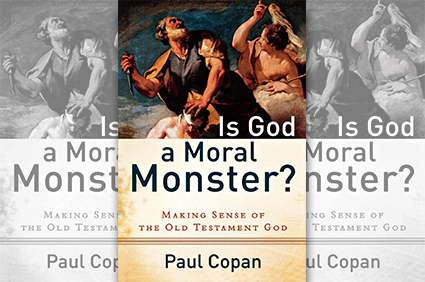Is God a Moral Monster?
Is God a moral monster? This question, taken from the title of Paul Copan’s well-known book, challenges many readers of the Bible, especially those struggling with what seems harsh judgments and severe commands found in the Old Testament. From the destruction of the Canaanites to the laws concerning slavery and punishment, skeptics have long accused the God of the Bible of being cruel, inconsistent, or even immoral. Some claim that the Old Testament God seems wrathful and barbaric, very different from the loving Father Jesus described.
However, this accusation originates more from misunderstanding than from solid theological or historical grounding. When we carefully examine the biblical texts in their cultural, historical, and theological contexts, we find that God is not a moral monster. Rather, He is consistently just, patient, merciful, and holy throughout the whole Bible.
1. God’s Justice Must Be Understood in Light of His Holiness
One of the primary objections people raise is the harsh judgment God brings on individuals and nations, especially in the Old Testament. However, this judgment is not random or impulsive. It flows from God's holiness and perfect justice. God is the righteous Creator and Judge of the universe (Genesis 18:25; Psalm 89:14). As such, He has the authority and right to judge sin. Every act of divine judgment is deliberate, purposeful, and tied to God's character.
Take the Canaanite conquest in the book of Joshua. Critics label it as genocide, but the biblical narrative tells a different story. God gave the Canaanites over 400 years to repent (Genesis 15:16). Their society had become deeply corrupted, filled with child sacrifice, temple prostitution, and extreme idolatry (Leviticus 18; Deuteronomy 12:31). God’s command to drive them out was both an act of judgment and a protection for Israel, lest they fall into the same wicked practices (Deuteronomy 20:18).
2. God's Commands Were Specific and Time-Bound
Another important point is that God’s harshest commands were specific to particular times and situations. They were not universal moral laws but rather judicial acts in a specific historical context. For instance, God's command to destroy the Amalekites (1 Samuel 15) was not a general rule for how Israel should treat all nations. It was a one-time judgment upon a people who had persistently attacked and opposed God’s people (Exodus 17:8–16; Deuteronomy 25:17–19).
Furthermore, many of the laws in the Mosaic covenant were temporary and tied to Israel's theocratic government. When Jesus came, He fulfilled the law (Matthew 5:17), and the New Testament makes clear that Christians are no longer under the civil and ceremonial laws of Israel (Romans 6:14; Galatians 3:24–25). The "harsh" penalties for sins like Sabbath-breaking or blasphemy had a role in preserving the holiness of the covenant community at that time but are not applicable today in the same way.
3. God's Mercy Is Seen Even in Judgment
Even in the most severe acts of judgment, we often see God’s mercy at work. For example, God spared Rahab and her household in Jericho because she believed in Him (Joshua 2). God sent prophets to warn Israel and the nations before judgment fell. The book of Jonah is a perfect example; God sends a reluctant prophet to a wicked city, Nineveh, because He desires repentance, not destruction.
In Ezekiel 33:11, God says, “I have no pleasure in the death of the wicked; but that the wicked turn from his way and live.” God’s justice and mercy are not opposites, they go hand in hand. The cross of Christ is the clearest demonstration of this. God judged sin fully, yet offered mercy completely, through the sacrifice of His Son.
4. The Bible’s Treatment of Slavery Is Often Misunderstood
Another issue that leads to charges of God being a “moral monster” is the Bible’s treatment of slavery. However, what the Bible describes is not the race-based, dehumanizing slavery of the transatlantic slave trade. In ancient Israel, slavery was more like indentured servitude, often used as a form of financial restitution (Exodus 21:2–6; Leviticus 25:39–43). It had protections and limits. For example, Hebrew slaves were to be released in the seventh year, and they could not be abused or mistreated.
The New Testament, while not calling for the overthrow of slavery as a social institution, planted the seeds of its eventual abolition by emphasizing the spiritual equality of all people (Galatians 3:28; Philemon 1:16). Wherever Christianity spread, the principles of abolition eventually led to the end of slavery in many cultures.
5. God’s Love and Justice Are Fully Reconciled in Jesus Christ
At the heart of the Bible is the person and work of Jesus Christ. He is not a new god who replaces the Old Testament God. He is the same God, incarnate (John 1:1,14; Colossians 2:9). In Jesus, we see the full expression of both divine justice and divine love. The same God who commanded judgment in the Old Testament is the One who wept over Jerusalem (Luke 19:41), healed the sick, welcomed sinners, and died on the cross to save His enemies (Romans 5:8).
If God were indifferent to sin, we would truly have reason to question His goodness. But because God punishes evil, we can trust that He is a righteous Judge. Because He offers mercy, we can love Him as a Savior.
Final Takeaway: God Is Not a Monster—He Is the Just and Merciful Creator
When taken out of context, some passages of Scripture may seem disturbing. But when studied carefully and honestly, the Bible reveals a God who is righteous, patient, and overflowing with love. The same God who judged sin in the Old Testament sent His Son to take that judgment upon Himself. Far from being a moral monster, God is the moral standard by which all truth and justice are measured.
The real question is not, “How could a loving God judge sin?” but rather, “How could a holy God love sinners like us?” The answer lies in the gospel.
“For God so loved the world, that he gave his only begotten Son…” (John 3:16)




No comments yet. Be the first to share your thoughts!